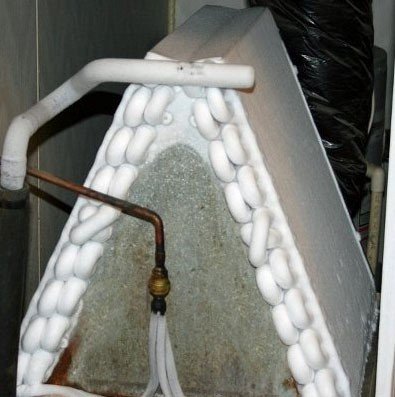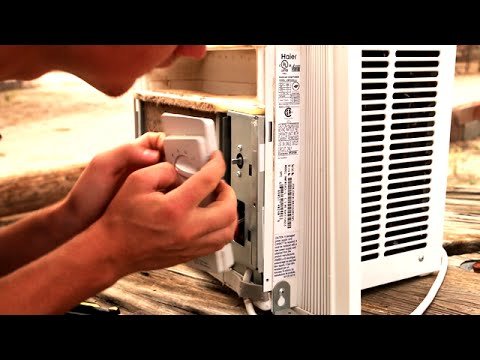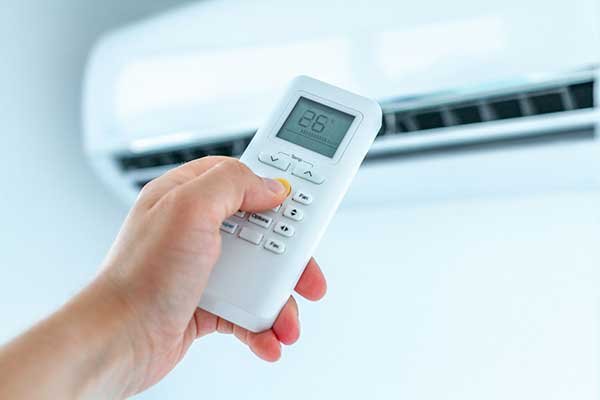Why Air Conditioner Not Cooling In Car: Troubleshooting Tips For Efficient Cooling
There could be several reasons why the air conditioner in a car is not cooling properly. Some possible causes include: – Low refrigerant levels – Clogged or dirty air filters – Issues with the compressor – Malfunctioning thermostat – Faulty condenser or evaporator – Electrical problems It is important to diagnose and address these issues to ensure a comfortable and safe driving experience.
Imagine cruising down a sunny road, wind in your hair, and your favorite tunes playing on the radio. The only thing interrupting your perfect driving experience is the stifling heat inside your car.
Despite cranking up the air conditioner, it fails to provide the refreshing cool air you so desperately crave. Frustrating, isn’t it? Well, you’re not alone.
Countless car owners like you have found themselves in this sweltering situation, wondering why their air conditioner is not cooling their car. But fear not, for this article will shed light on the mysteries behind this conundrum and arm you with the knowledge to fix it. The importance of understanding why your air conditioner is not cooling in your car cannot be overstated.
We rely on our vehicles not just as modes of transportation, but also as personal oases of comfort. The inability to cool your car effectively can not only lead to discomfort, but it can also have adverse effects on your driving experience, concentration, and overall well-being. Moreover, in extreme weather conditions, such as scorching summers, a malfunctioning air conditioner can pose health risks, especially for vulnerable individuals.
Common Causes and solutions of Air Conditioner Not Cooling in Car
When it comes to troubleshooting why your car’s air conditioner is not cooling, several common culprits could be behind the issue. Understanding these potential causes will aid in identifying and resolving the problem effectively.
Low Refrigerant Levels
One of the primary reasons for an air conditioner’s inadequate cooling performance is low refrigerant levels. Refrigerant is the substance responsible for extracting heat from the air and cooling it down. If there is a leak in the system, the refrigerant levels can drop, leading to reduced cooling efficiency.
To diagnose and fix low refrigerant levels, it is recommended to consult a professional mechanic or an automotive air conditioning specialist. They have the necessary tools and expertise to identify leaks, repair them, and replenish the refrigerant to its optimal level.
Compressor Issues
The compressor plays a vital role in the air conditioning system by compressing the refrigerant and circulating it through the system. If the compressor malfunctions or fails, it can result in insufficient cooling or no cooling at all.
Common compressor issues include electrical failures, damaged clutch, or a worn-out compressor itself. A professional diagnosis is necessary to determine the specific problem with the compressor and implement the appropriate solution, which may involve compressor repair or replacement.
Faulty Condenser
The condenser is responsible for dissipating the heat absorbed from the air by the refrigerant. If the condenser is damaged or becomes clogged with debris, it can hinder the heat transfer process, leading to inadequate cooling.
In such cases, cleaning or replacing the condenser may be necessary to restore the air conditioner’s cooling performance. Regular maintenance, including keeping the condenser clean and free of debris, can help prevent condenser-related issues.
Blocked Air Vents
A common yet often overlooked cause of reduced cooling in a car’s air conditioner is blocked air vents. Over time, dust, debris, or other foreign particles can accumulate and obstruct the airflow, preventing the cool air from reaching the cabin effectively.
To rectify this issue, inspect the air vents for any visible blockages and clean them thoroughly. Regularly replacing the cabin air filter can also help maintain optimal airflow and prevent blockages.
Electrical Problems
Faulty electrical components within the air conditioning system can lead to cooling problems. Issues with the wiring, fuses, relays, or control module can disrupt the functioning of the air conditioner, resulting in reduced cooling performance.
Diagnosing and repairing electrical problems requires specialized knowledge and skills. It is advisable to seek professional assistance to identify and resolve any electrical issues affecting the air conditioning system.
Malfunctioning Blower Fan
The blower fan is responsible for circulating the cooled air throughout the car’s cabin. If the blower fan malfunctions or fails, it can lead to insufficient airflow and reduced cooling.
A professional inspection will help determine if the blower fan needs repair or replacement. Regular maintenance, including cleaning or replacing the cabin air filter, can also prevent issues with the blower fan.
Thermostat Problems
The thermostat regulates and controls the temperature of the air in the car. If the thermostat is not functioning correctly, it may not signal the air conditioner to cool the air adequately.
Professional diagnosis is necessary to determine if the thermostat is at fault. Depending on the issue, the thermostat may need calibration, repair, or replacement to restore proper cooling functionality.
Leaks in the System
Leaks in the air conditioning system can cause a loss of refrigerant, leading to decreased cooling performance. These leaks can occur in various components, such as hoses, seals, or connections.
It is crucial to have a professional inspection to identify and repair any leaks in the system. Once the leaks are resolved, the refrigerant can be replenished to ensure optimal cooling.
Overheating Engine
An overheating engine can also impact the cooling performance of the air conditioner. When the engine overheats, it produces excessive heat, which can affect the overall efficiency of the air conditioning system.
Regular maintenance of the cooling system, including checking coolant levels and addressing any cooling system issues, can help prevent engine overheating and ensure optimal air conditioner performance.
Environmental Factors
Lastly, it is essential to consider external factors that may affect the cooling performance of the air conditioner. Extremely high ambient temperatures, direct sunlight exposure, or high humidity levels can place additional strain on the air conditioning system, reducing its effectiveness.
In such situations, it may not be possible to achieve the desired cooling level. However, ensuring proper maintenance and addressing any underlying issues will optimize the air conditioner’s performance under normal conditions.
When your car’s air conditioner fails to cool effectively, it can be a frustrating experience. However, understanding the common causes behind this issue can help you diagnose and resolve it efficiently. Whether it’s low refrigerant levels, compressor problems, or blocked air vents, professional assistance and regular maintenance are key to restoring optimal cooling performance. By addressing the underlying issues and following a proactive approach to car air conditioner maintenance, you can ensure a comfortable and refreshing driving experience, no matter the weather.
How to Recharge Your Car’s AC System (Fast and Easy)
Why is my car’s air conditioner not cooling?
How can I tell if my car’s AC compressor is faulty?
What should I do if the AC is blowing warm air?
Can a clogged condenser cause the AC to stop cooling?
Why is my car’s blower motor not working?
Final Words: Maintaining and Optimizing Your Car’s Air Conditioning Performance
In conclusion, there are several common causes for an air conditioner not cooling in a car. Low refrigerant levels, compressor issues, faulty condensers, blocked air vents, electrical problems, malfunctioning blower fans, thermostat problems, leaks in the system, overheating engines, and environmental factors can all contribute to inadequate cooling performance.
It is essential to understand these potential causes to effectively diagnose and resolve the issue. Consulting a professional mechanic or automotive air conditioning specialist is recommended for diagnosing and fixing low refrigerant levels, compressor issues, and electrical problems.
Regular maintenance, including cleaning or replacing the condenser and cabin air filter, can help prevent condenser-related issues and blockages in air vents. Repairing or replacing a malfunctioning blower fan and addressing thermostat problems may also be necessary. Additionally, identifying and repairing any leaks in the system and maintaining the cooling system can prevent engine overheating.
Finally, it is important to consider external factors such as high ambient temperatures, direct sunlight exposure, and high humidity levels which can strain the air conditioning system. While achieving the desired cooling level may not always be possible under these circumstances, proper maintenance and addressing underlying issues will optimize the air conditioner’s performance in normal conditions. By taking a proactive approach to car air conditioner maintenance and seeking professional assistance when needed, drivers can enjoy a comfortable and refreshing driving experience, regardless of the weather.






